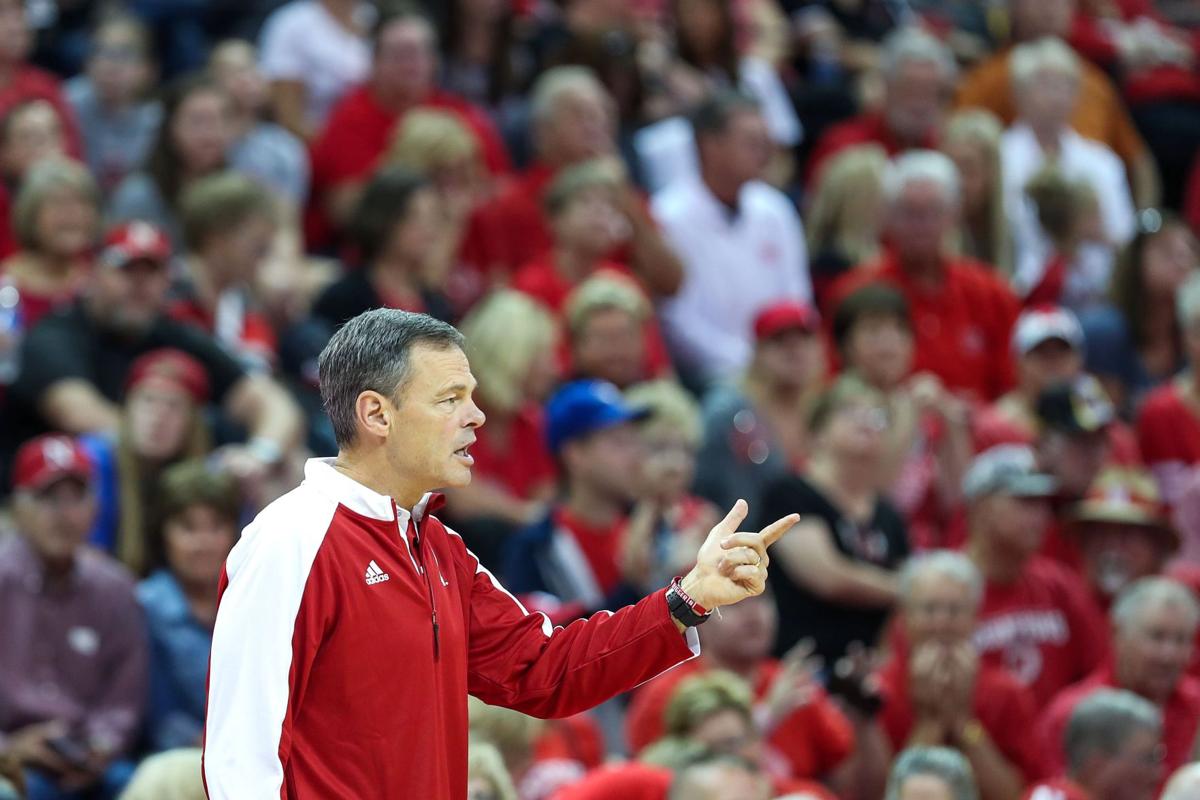
John Cook, Head Volleyball Coach, Nebraska (BRENDAN SULLIVAN/THE WORLD-HERALD)
Supply and demand. That’s the rule of economics. That’s the law of recruiting.
In a perfect world, college coaches wouldn’t make scholarship offers to eighth- and ninth-graders because there would be enough talent to go around three or four years later.
“The reality of volleyball is you need kids who are physically superior in order to elevate your program to the next level,” said John Tawa, founder of PrepVolleyball.com. “You can wait and find players who are very good who will help any program, but they’re not program-changers.
“So you are fighting for a small pool of elite athletes.”
That’s the coaches’ incentive. Now look at the players’ perspective. Again, demand exceeds supply.
Take the setter position, Tawa said. A top program that runs a 5-1 offense will grant a setter scholarship only every other year. So if there are 30 elite programs, you’re talking about 15 scholarships for setters. If you’re waffling over an offer, your coach won’t wait.
“They’ll go to Plan B pretty quickly,” Tawa said.
Borne out of the scarcity of resources, volleyball insiders see (at least) 12 big issues with volleyball’s rush to commit.
1. Planning headaches for coaches
John Cook feels like an NBA general manager, he said. Every week his staff meets to discuss scholarship allocation. Not just for 2017 or ’18, but four or five years down the road. Decisions for the class of 2021 must be made now.
“Let’s say a ninth-grader comes to camp or a visit,” Cook said. “If you don’t offer them, you may never get another chance. That’s the pressure we’re all feeling. If I want to wait and see how she develops, there might be 20 other schools that offer. So she’s going to think, ‘Oh, Nebraska isn’t interested.’
“Two years later, you say, ‘We love what you’re doing, we want to offer you.’
“ ‘Sorry, it’s too late,’ they say. ‘You don’t offer me when I was there.’ ”
You try to make predictions, Cook said. You weigh the risks of offering some girls early — and waiting on others. You hope you don’t invest four years in a prospect who doesn’t develop, gets hurt or transfers. In that case, you have to start over chasing ninth-graders.
“If something doesn’t work out,” Iowa State coach Christy Johnson said, “all of the good players have already committed.”
Click on the link below to read the rest of the article:
http://www.omaha.com/neprepzone/volleyball/twelve-glaring-problems-with-volleyball-s-early-recruiting-culture/article_c33e3720-8551-11e7-9928-a78a5df2c691.html
